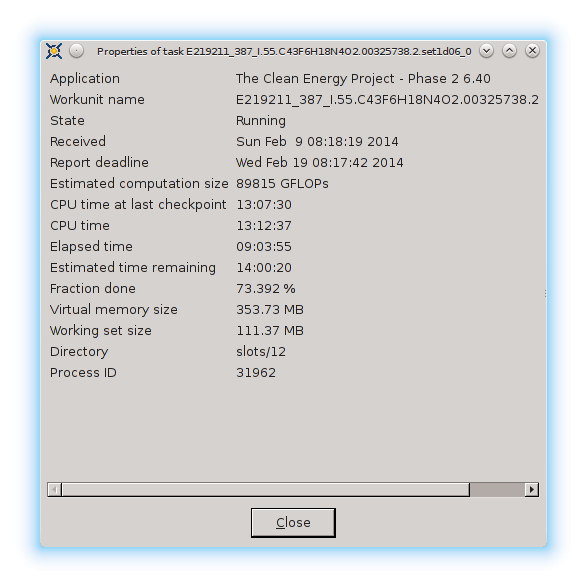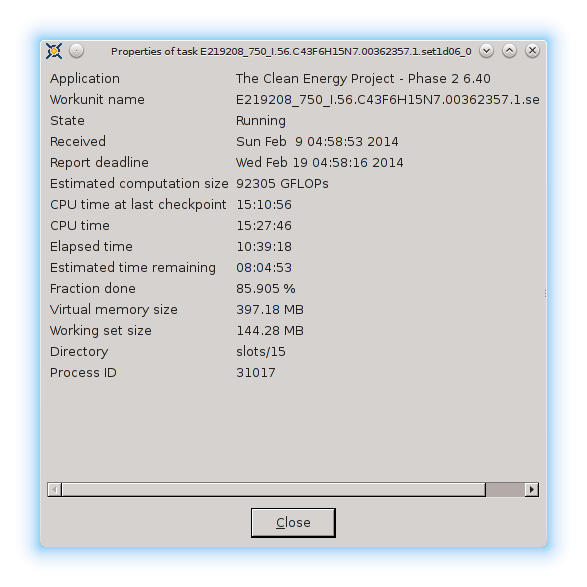The CPU Time reported by BOINC Mgr is not the same as the Elapsed Time.
I am curious if anyone else is experiencing the same thing, or understands the cause. The only thing I can think of is that the CPU Time is based off of the benchmark values for a single core, where the Elapsed Time is the actual processing time of the WU. This wouldn't be an issue, except some projects stop after a certain number of CPU Time Hours.
Examples:


Running 31 threads on 32 cores from a ramdrive (ramdrive syncs to ssd every 60 seconds)
I am curious if anyone else is experiencing the same thing, or understands the cause. The only thing I can think of is that the CPU Time is based off of the benchmark values for a single core, where the Elapsed Time is the actual processing time of the WU. This wouldn't be an issue, except some projects stop after a certain number of CPU Time Hours.
Examples:


Running 31 threads on 32 cores from a ramdrive (ramdrive syncs to ssd every 60 seconds)
![[H]ard|Forum](/styles/hardforum/xenforo/logo_dark.png)